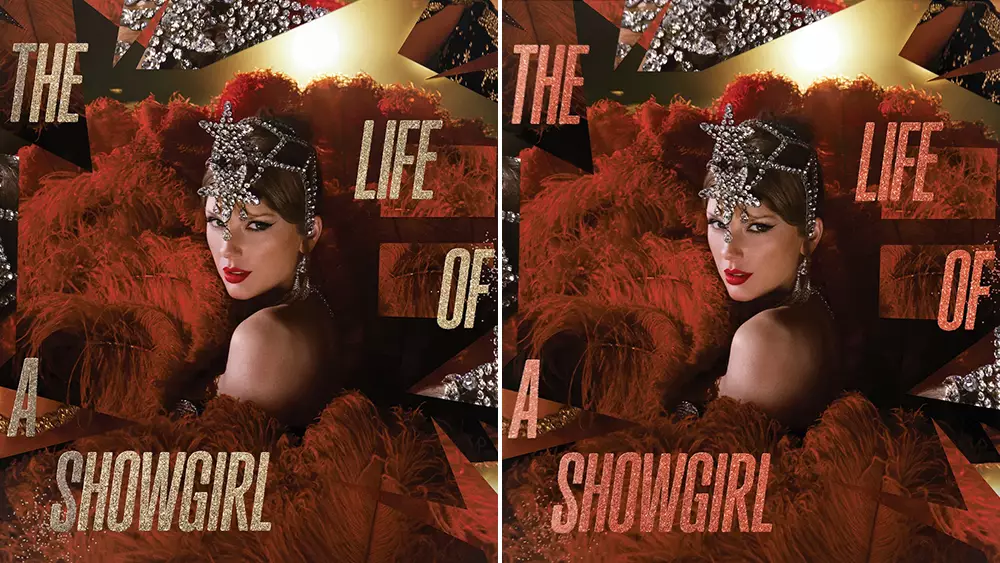In an era where blockbuster films scramble for limited audience attention, a surprising and strategic move has emerged: Taylor Swift’s clandestine movie release coordinated with her latest album, *The Life of a Showgirl*. This unexpected collaboration between the pop superstar and AMC Theatre signals a broader shift in how entertainment is marketed and consumed. Contrary to traditional movie releases, which rely heavily on broad distribution and extensive marketing campaigns, Swift’s approach demonstrates a penchant for exclusivity and timing that could challenge the dominance of conventional studio releases.
For the past decade, celebrity-driven events in the cinematic space have often been viewed as risky gambles, persuading studios to depend more on franchise fatigue and brand familiarity than genuine innovation. Swift’s ability to leverage her enormous fanbase—Swifties—alongside a carefully curated, limited run at AMC, flips that script. The decision to release the movie solely over three days indicates a deliberate attempt to generate a sense of urgency, almost turning her film into a must-see cultural event rather than just a standard flick. This strategy speaks volumes about power dynamics in Hollywood, where star influence and fan engagement are beginning to exert more control over distribution channels.
The Economic Implications and Shifting Industry Power
What makes this move particularly noteworthy from an industry standpoint is the economic potential for AMC. The chain’s previous collaboration with Swift on the *Eras Tour* concert film was highly profitable, and the theater giant seems eager to replicate that success. Their involvement signifies a shift toward exclusive theatrical partnerships, where the power to shape release schedules and marketing narratives resides increasingly with the artist and the theater chain rather than the traditional studios.
This model could threaten the longstanding dominance of studio-controlled wide releases. By limiting the film’s window to just a few days, Swift and AMC are attempting to maximize box office impact in a compressed time frame. It’s a bold response to the declining engagement with traditional cinema, especially among younger audiences glued to streaming services. The gamble is that by creating a single, high-profile event, they can reignite interest in theatrical viewing, especially when other big films such as *Avatar: The Way of Water* re-release and blockbuster aging stars like Dwayne Johnson are on the horizon.
From a strategic perspective, this move could enhance the leverage of superstar artists over the film industry, pushing cinema into an era of more selective, star-driven events. If successful, it could overturn the presumed necessity of weeks-long theatrical runs, shifting power back into the hands of those who command massive audiences and brand loyalty.
Potential Ramifications for the Future of Movie Releases
The reaction from industry veterans and studios should be viewed critically. While some might see this as a clever marketing stunt, others might interpret it as a step toward fragmentation, where the studio model is further eroded in favor of artist-centric, short-term theatrical spectacles. This approach favors exclusivity over accessibility, aligning with a broader cultural trend of valuing rare experiences over mass market products.
Furthermore, the fact that Swift’s movie will only play during a tight window, with specific showtimes, could redefine consumer expectations—making cinema more akin to a live event or concert than traditional film viewing. This shift could bolster the value of star power and fan loyalty, which are becoming increasingly influential in shaping entertainment landscapes. It also raises concerns about the viability of mid-tier or small-budget films, which may struggle to secure a lucrative, limited-window theatrical debut if these star-driven events grow in popularity.
Overall, Taylor Swift’s secret film exemplifies a disruptive force born of star influence, strategic exclusivity, and industry adaptability. It challenges how studios think about releases, content engagement, and the power balance between artists and distributors. If this model proves profitable, expect more artists and theater chains to adopt similar tactics, ultimately reshaping what it means to experience cinematic art in the modern age.

